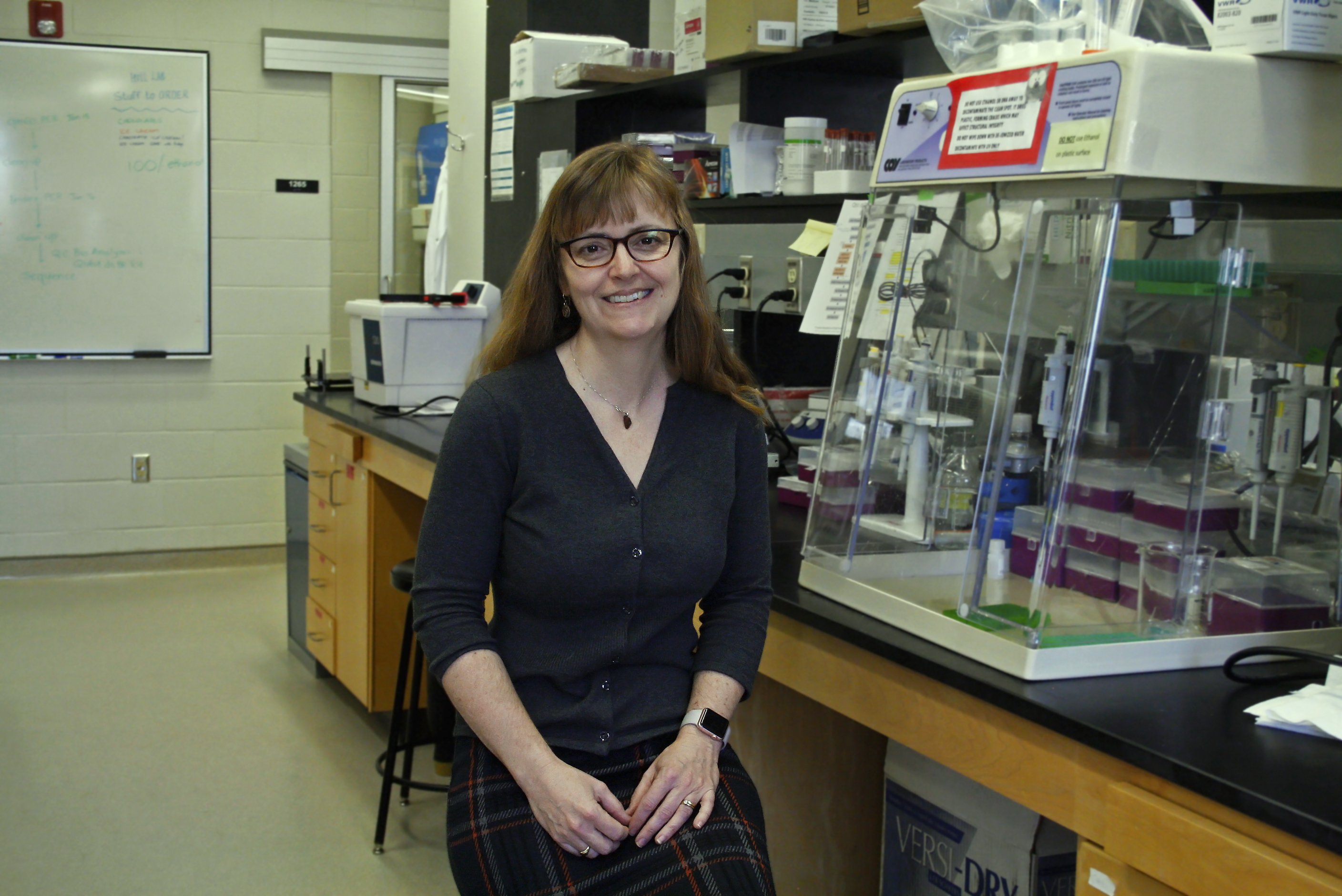
Undergrad Researchers: Investments worth Making
Dr. Hill, a faculty member in the Western College of Veterinary Medicine, makes a point to welcome two undergraduate students every summer, often through the Undergraduate Student Research Assistantship (USRA) programs. Regardless of their academic background, Hill finds that any student who is "willilng to learn, work hard, and be enthusiastic" could be a good fit, not just for her lab, but for any undergraduate research experience.
Dr. Janet Hill’s campus home is the Western College of Veterinary Medicine. As Department Head, Graduate Chair and full-time professor in microbial ecology and infectious diseases, it is easy to imagine how busy things get for her. Among the endeavours she prioritizes, Hill still makes a point to welcome two undergraduate students every summer, often through the Undergraduate Student Research Assistantship (USRA) programs.
 The summer undergraduate research assistants Hill hires become an integral part of the research team and learn a lot in just four short months. As for Hill, with every new summer student, she “vicariously enjoys how excited they get” and watches as they each bring their unique energy to the project. Hill sees a marked progression of the students who come into her lab, going from beginner researchers to reliable, trusted, and experienced junior scholars. Regardless of their academic background, Hill finds that any student who is “willing to learn, work hard and be enthusiastic” could be a good fit, not just for her lab, but for any undergraduate research experience. Students who work at the Hill Labcan expect to leave with more than technical skills. A summer with Hill means you will also “learn about organizing time, working with a team, interpretation skills, investigating, how to present and think critically” – all of which translate into stronger academic and professional habits.
The summer undergraduate research assistants Hill hires become an integral part of the research team and learn a lot in just four short months. As for Hill, with every new summer student, she “vicariously enjoys how excited they get” and watches as they each bring their unique energy to the project. Hill sees a marked progression of the students who come into her lab, going from beginner researchers to reliable, trusted, and experienced junior scholars. Regardless of their academic background, Hill finds that any student who is “willing to learn, work hard and be enthusiastic” could be a good fit, not just for her lab, but for any undergraduate research experience. Students who work at the Hill Labcan expect to leave with more than technical skills. A summer with Hill means you will also “learn about organizing time, working with a team, interpretation skills, investigating, how to present and think critically” – all of which translate into stronger academic and professional habits.
Whether it is through departmental programs, college or wider campus, Hill encourages students to opt into the research opportunities available to them. It can be difficult finding out about summer opportunities, since they are normally shared by word of mouth and advertised within a department. That’s why it’s important for students to keep an eye out and be proactive in looking for them. Sometimes all a student needs to do is “work up the nerve to talk to people” – whether it’s a lab instructor, TA, professor, or classmates – to find out about a research opportunity. She also advises students to get into the game early, because summer positions can be filled as early as February.
“Students have to give research a chance” and be open-minded in pursuing it. Chances are, they won’t be disappointed. For Hill, research is what makes her job fulfilling: “I essentially learn for a living… And it’s rarely routine; it’s like a new job every day.” Sharing this passion with students in a hands-on way is what makes having undergraduates in the lab so rewarding. When Hill takes on a student, she sees herself as making an investment in them. And although it can require a fair amount of time and energy to train a student in the early stages, it’s always “worth the investment” in the long-run. Before the end of the summer, there comes a time when the novice scholar sees something they learned in class unfold in a “real-world” setting in the lab. These eureka moments are some of the most memorable of any project. When it happens, Hill’s students connect the dots and understand, on an experiential level, what a certain textbook concept means, or they might uncover the process or evidence that led to the discovery of a threshold concept in microbiology or virology. These instances when students are exposed to raw, uncut research stay ingrained in students’ memories, and remind Hill why she continues to look forward to working with undergraduates each summer.
Follow @Saskajanet and @usaskUGResearch on Twitter to learn more

